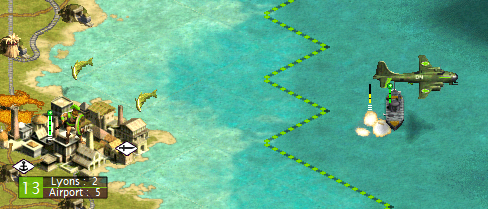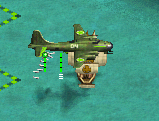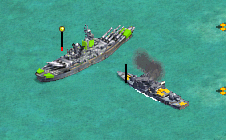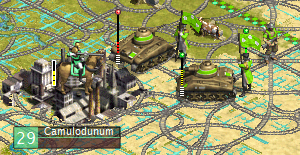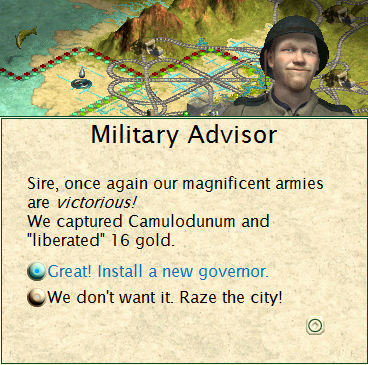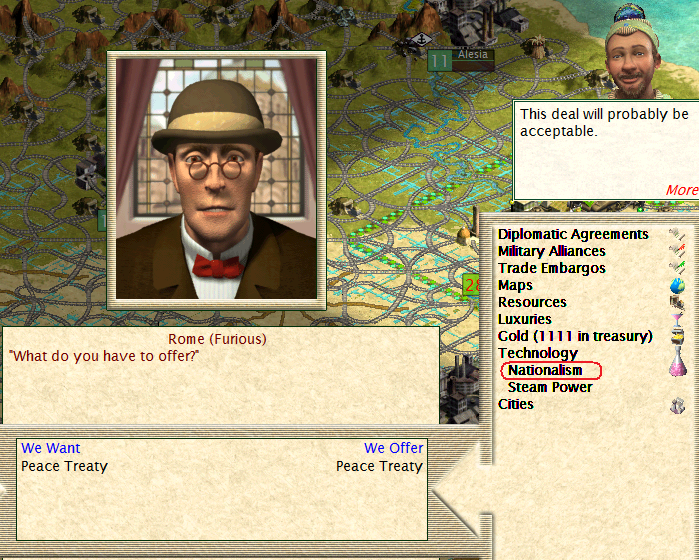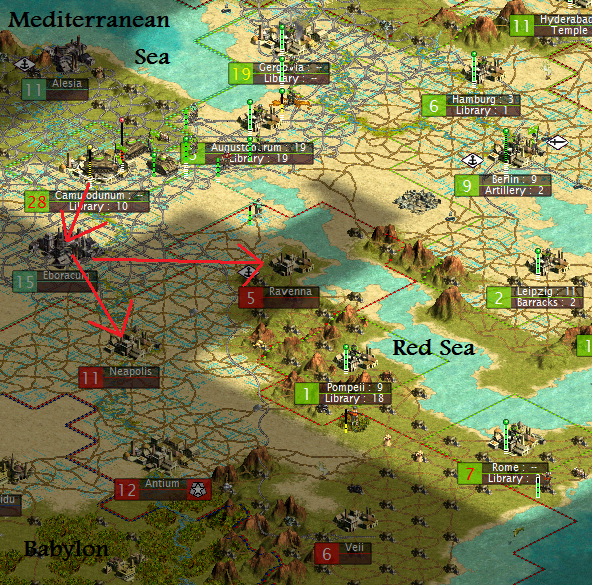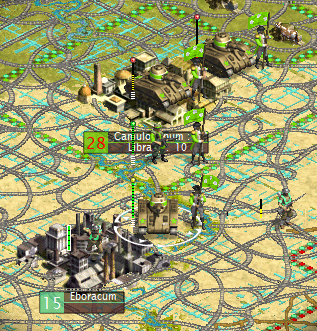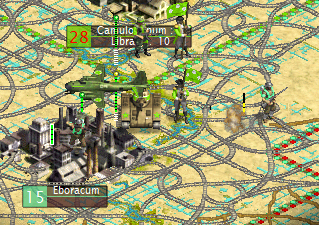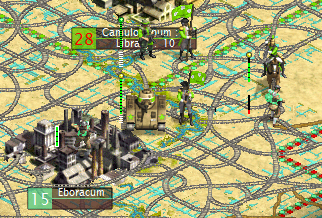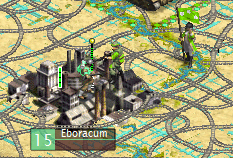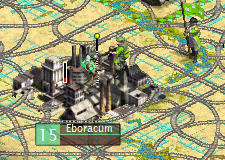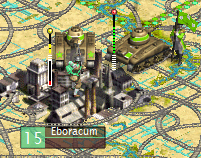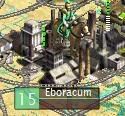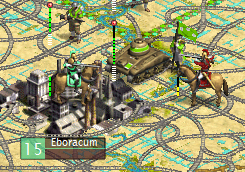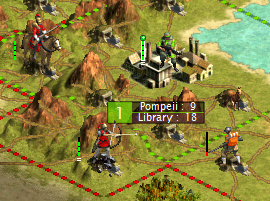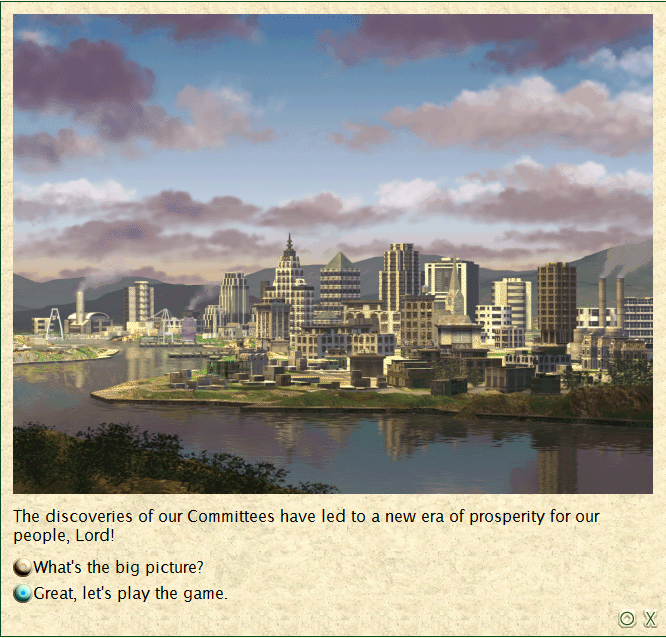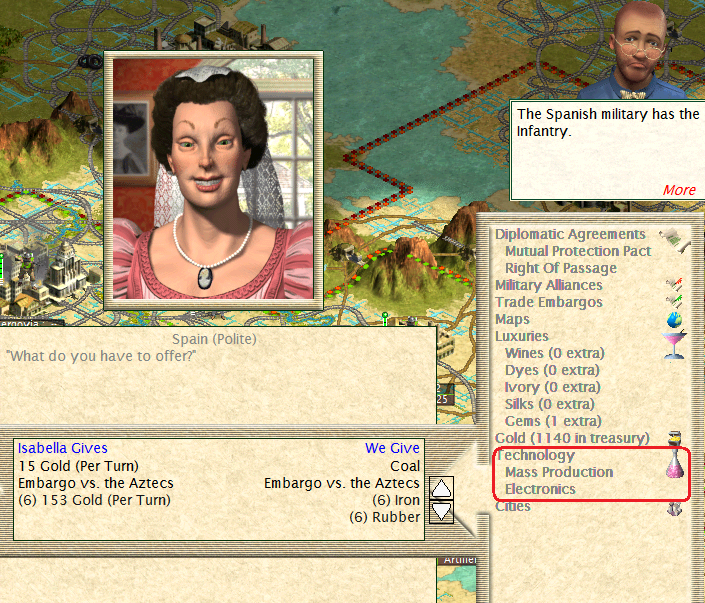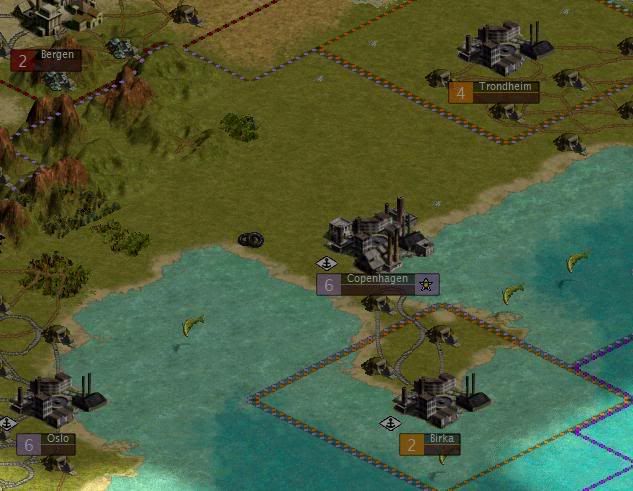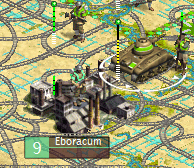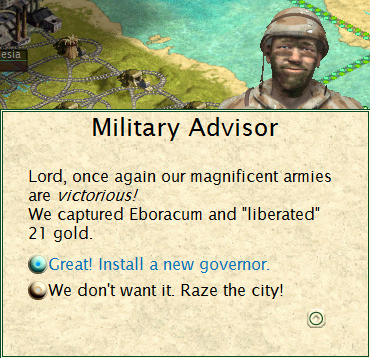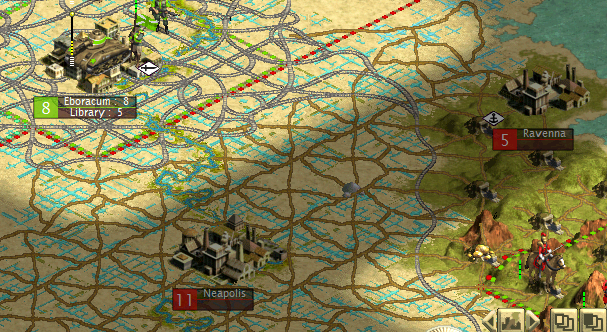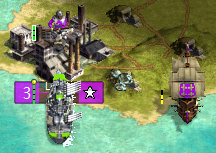The last section ended in 1942 A.D., where Greek troops were fighting the Celts at Camulodunum and awaiting reinforcements at Tenochtitlan.
1943 AD - The Sumerians requests peace; I refuse for now. Not like they've done anything to us yet.
The Byzantines send a good number of troops south into Africa this turn. I suspect they are targeting Persian holdings in Africa. Good for them if they can take them.
The Inca then align with the Aztecs against the Byzantines. I highly doubt the Byzantines had New World ambitions, anyways.
The Aztecs, meanwhile, have finally had their navy come of age. An Aztec Destroyer attacks and destroys my Cruiser off the shore of Central America. We have a Battleship nearby and will seek revenge, but no longer does Greece have unchallenged reign on the high seas.
The Celts also show a bit of life, attacking the Byzantine forces entering Africa, shelling one of my armies, and making an attack on Augustodurum. Perhaps they took my three-week hiatus as a hopeful sign?
Russia made the fateful move of sending their navy back towards home rather than towards the middle of the Pacific this turn. Fateful because it means they're heading right towards my ironclads...
1944 AD - Teotihuacan's culture expanded this turn, and we also hurried the production of an Airport. You know what that means - before long we'll have lots and lots of troops coming into the New World.
Those Russian ships are already realizing their error, and my Ironclads haven't even arrived:
This is when you wish you had set out to sea and never looked back. Four bombers hit them and they're left with four hitpoints over all three ships.
My Battleship off Central America finds the Destroyer on which it is to get revenge. That it does, though not quite as convincingly as had been hoped.
Without much else to do, nor any way of hurting Tenochtitlan much by destroying the countryside, my New World Expeditionary Force simply bombards the city. Reinforcements will come soon.
Camulodunum is once again our main target, and this turn we have ten Artillery within range for bombardment. That'll be a fun romp.
*****
Sirens sounded as the citizens of Camulodunum ran to shelters and the soldiers hurried to get out of the open. Somewhere communication had broken down, and the Greeks had got their artillery firing when the Celts were off guard.
The Celtic companies seemed to have mostly good luck finding cover from the shells - a few were hit, but there were many instances of avoiding the shells by a block or two, and for quite a while the artillery did little damage. But not all the units could seek cover - there were, after all, two tank armies just outside the city that could attack at any moment - and as the Greeks refined their aim they became more accurate. By the time the barrage were over, the two Celtic regiments in the city were at half strength - not a good position, but certainly better than it might have been.
The Celtic companies were cautiously optimistic. For the potential damage, they had escaped fairly well. But they still needed good luck in the fighting to hold off Greece. Then they began to here a far off sound, like thunder, but continuous. That was strange, they thought, for it was a very hot, cloudless day. Slowly, the monsters came into view. It was as if pteridactyls had come to life again and were flying in formation towards the city - only they weren't flapping their wings. The Celts had heard of these machines - the Greeks called them bombers - before, and had heard of their use at Augustodurum, and rumors of their use at Vladivostok. But very few in the city of millions had seen them - and they certainly didn't want to see them again.
The bombers came and dropped their bombs unceremoniously on the city. Five formations of bombers came through, and though each tried to target their strikes, the results were erratic. Once, a residential area was shattered by the bombs. Another time the financial district was ravaged when bombs tore into the stock buildings. Two formations, however, did hit military targets, striking the barracks and some Celtic troops trying to maintain calm in the city. Now the tanks were ready to begin their attack.
*****
The tanks accerlerated towards the city, moving quickly but still taking artillery fire from the Celts. The outermost defenders fell fairly easily, but as the battle become urban warfare it become more difficult for the Greeks. Several tanks were incapacitated by bazookas fired out windows or from rooftops. In all, nearly one quarter of Ulysess's tanks were taken out of action by the Celts. But the strongest Celtic regiment fell. The tanks regrouped after quelling these troops, and as they did so the Celts organized their own, impromptu defenses. Many men of the city had in recent months been drafted, and now, with little formal training yet, were to take a stand against the strongest armies in the world.
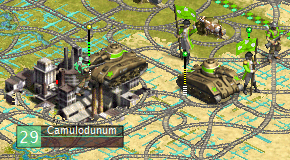
Their lack of training showed, as they were not nearly as effective as the reduced veterans. Though more than 10% of the tanks were taken out, it was not nearly enough to stop the Greek momentum. The Greeks then moved into the next sector of the city to be taken, again defended by newly conscripted soldiers.
These soldiers fought remarkably well. They showed more determination and had a knack of being just ahead of the professional and well-organized Greek tanks. Many tanks were lost before enough damage was inflicted on the conscripts for them to realize their fragility. Once they started falling, they did quickly, but much damage had been done - half the remaining tanks in Ulysess's army had been immobilized. He was now down to 1/3 the strength he began the year with.
Ajax, still having eight hitpoints remaining (versus Ulysess's four - and no movement points), would lead the next charge. But the Celts had changed their main defense. Now Cavalry were on the front lines. Though no match for a tank, their numbers made them the Celts' most potent defenders. So they would face battle.
Their mismatched weapons showed. Though quicker than the Infantry, muskets and rifles don't do half the damage to tanks that bazookas do. It was no great surprise the Cavalry were overwhelmed.
At last the Celts had only one defender, a redlined Veteran Infantry. Though considering sending in an Elite Cavalry and trying for a leader, ultimately we decided we may need its speed later and risking it now would not be prudent. Thus Ajax is sent in again. He quickly achieves victory, and the largest city in the world is ours. Four million people have been incorporated into the Greek Empire.
Now, as we no doubt have the Celtic government in panic, searching desperately for ways to defeat us, might seem an odd time to let up on the Celts. But that's exactly what I plan to do right now. Why? Well, take a look at this screenshot:
Rome lacks Nationalism right now, but is on the brink of discovering it. If we take them out now, we will face a minimum of rifles, and possibly even eliminate them before they field any. The Celts, already having Infantry, are not yet on the brink of discovering an equalizing technology - they may get Flight soon, but they won't be able to get enough airplanes to make a real difference in casualties as Riflemen might.
Thus, the march will turn south. Before we can target Rome, the Celtic city of Eboracum must be taken.
A quick glance at Eboracum by Hector's Marine army shows it to be defended by an Elite Infantry. It wouldn't be worth it to attack now with just Hector. But we have more than Hector. We have...
Theodoros Kolokotronis! His army had been waiting for tanks to be created to join it, and we had three tanks, so we filled up the army and now Eboracum is in danger of attack. We take the three Artillery that had bombarded Augustodurum last turn - the only ones that didn't attack Camulodunum this turn - and have them bombard Eboaracum. Only one hits its target, but every little bit helps. The only extra Bomber we send to attack some injured Celtic troops outside the city, avoiding sending a Tank or Cavalry there.
Or so we thought. The Infantry is reduced from two hitpoints to one. Taking the Elite Cavalry we didn't attack Camulodunum with, we attack this Infantry.
We get rather worried as the Infantry consistently mows down our horsemen, but the very last Cavalry manage to escape the machine gun fire and down the Infantry. It'll be a few turns before these Cavalry are attacking again.
Without further ado, Theodoros Kolokotronis begins the attack on Eboracum. The attack goes well, and soon two Infantry regiments fall to his tanks,
who lose only four hitpoints themselves. The Celts have at least one more Infantry left, but we figure why stop now? So Hector is called on to move in and attack the Celtic town.
***
The Marines charged across the desert, eager to partake in the glory, yet keenly aware of the dangers. Eboracum had not been in the Greek military plans at the beginning of the year, and most of Greece's resources had been thrown at Camulodunum - and not without reward. The Celtic military in the city survived the relatively light bombardment well, and with such a large city the dangers of urban warfare would be playing a significant role in the attack. Yet there was a good part to the Greeks being beyond their expected front - the Celts here likely weren't expecting this attack, either.
Expecting the attack or not, the Celts fought hard. The Greeks lost more than the Celts' number, but due to their numerical advantage still won.
***
"Men, we are the last ones to defend this city. There is no option to retreat. The Greeks are skilled fighters, and they have powerful weapons. But they do not know this city, they do not value this city like us, they are far away from what they know and love. We cannot allow them to overrun us. Fight well, men, for that is the only thing that will protect us from destruction."
The soldiers took this to heart, and fought ferociously to thwart the Greeks. And they did well at this. Twice they turned back the best tank divisions in Greece with low casualties. Greece, having no other choice, sent in their last tank division in an effort to take the city.
***
"We've been turned back twice. To fail again would be a disgrace. We have the most modern military in the world. But we're letting ourselves become too confident, and that is leading to mistakes. Remember that although we have the best weapons, we must still fight as if we are deserving of them. And we can do that. We have the training, we have the experience, we have the ability. Fight like you know how to, and bring honour to your homeland! Now,
take that city!!!"
The battle would not be easy. By now the Celtic defenders were seasoned against tanks, and knew the nuances of how to defeat them. But these Greeks were determined to succeed where the others had failed.
It was a difficult battle indeed against the super-elite Celts. But the Greeks this time triumphed, albeit with heavy casualties, and were about to take the city when...
The Celtic cavalry arrived! Alas, it was more than the Greeks could take on this turn, having no more tanks or cavalry, and having attacked with all their armies. The city would stand another turn. Greek Marines moved in to reinforce the leading armies, and Infantry, Guerillas, and Hoplites to guard the troops further back, and the Greeks ended their turn...
1945 AD - The Ottomans captured Tlatelolco this turn, leaving Tenochtitlan on the front lines of both the Greek and Ottoman advances. The iron outside Tenochtitlan was pillaged by Ottoman forces, and Sipahi approached the city from the south. The Aztecs situation looked grave, but then an Aztec convoy approached from the south Pacific. A Greek battleship watched the scene, but would not be able to stop the potential Aztec reinforcements - it was heavily damaged alrady and had to return to port. But the climax in Central America is clearly nearing.
The Byzantines also made a power play this turn, attacking Eboracum with Cavalry in a bid to take it for themselves. It was a good effort, but in the end was thwarted.
A large Hittite naval convoy also was spotted nearing the Strait of Madagascar from the south. Its ships had taken a good beating already, but the size remained impressive - whoever it is approaching could be in for a quite unpleasant surprise. Later we see some Japanese ships bombarding the Hittite ones - the South American war has spread to the coast of Africa.
The Celts, not unexpectedly, reinforced Eboracum. It won't be an easy battle.
The Romans prove to be somewhat annoyed with us, and sent some Cavalry and Longbowmen infantry towards Pompeii. One Longbowman attacks and destroys a Persian infantry rather than us, however - certainly something we're fine with.
The Longbowman wins, but we aren't too concerned Rome's army will conquer our empire as well as those Infantry.


 ) -Greece invades Tenochitlan by army transported across the world!!
) -Greece invades Tenochitlan by army transported across the world!! 
